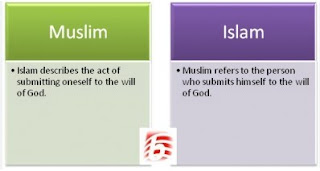Islam, Muslim, and Arabic are three terms that are often used interchangeably, but they actually have distinct meanings. In this article, we will explore the differences between these terms and what they represent.
Islam:
Islam is a religion that was founded by the Prophet Muhammad in the 7th century CE in the Arabian Peninsula. It is based on the teachings of the Quran, which is considered to be the word of Allah as revealed to the Prophet Muhammad. Islam is a monotheistic religion that emphasizes the worship of one God (Allah) and the submission to His will.
Muslim:
A Muslim is a person who follows the religion of Islam. The term "Muslim" is derived from the Arabic word "Islam", which means "submission to God". Muslims believe in the oneness of God and follow the teachings of the Quran and the Hadith (sayings and actions of the Prophet Muhammad).
Arabic:
Arabic is a language that is spoken by over 400 million people around the world. It is the language of the Quran and is therefore considered to be the sacred language of Islam. However, not all Muslims speak Arabic, and not all Arabic speakers are Muslims.
While Islam, Muslim, and Arabic are often associated with each other, it is important to understand that they are distinct concepts. Islam is a religion, Muslim is a person who follows that religion, and Arabic is a language that is associated with that religion.
It is also important to note that Muslims come from diverse cultural and ethnic backgrounds. While the majority of Muslims live in the Middle East and North Africa, there are also significant Muslim populations in South Asia, Southeast Asia, and Sub-Saharan Africa. Muslims come from a variety of ethnic backgrounds, including Arab, Persian, Turkish, and South Asian, among others.
In conclusion, Islam, Muslim, and Arabic are three distinct concepts that are often conflated. Islam is a religion, Muslim is a person who follows that religion, and Arabic is a language that is associated with that religion. Understanding these distinctions is important for promoting interfaith dialogue and fostering greater understanding and respect among diverse communities.

